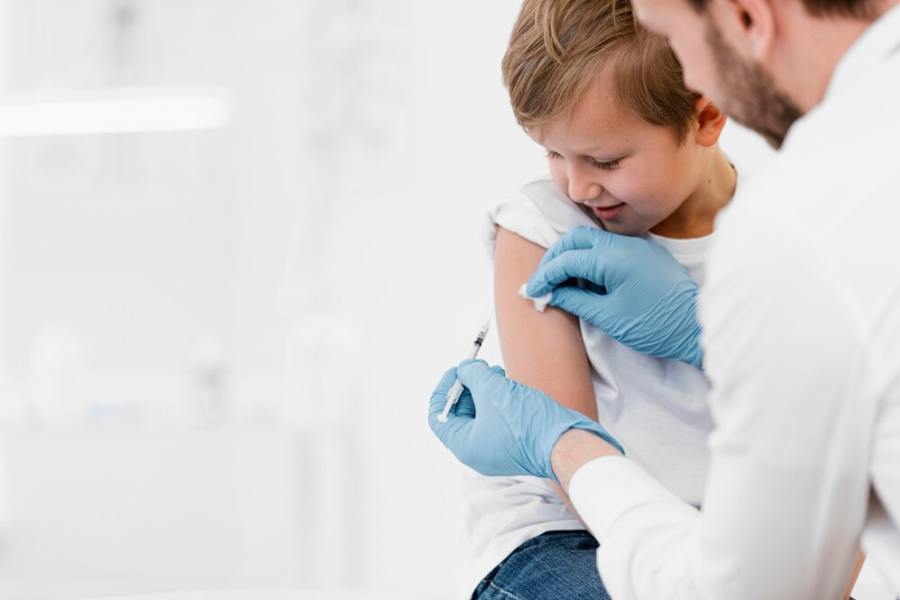With rising awareness about respiratory illnesses, one pressing public health question is: who should get RSV vaccine? Respiratory syncytial virus (RSV) causes significant illness, particularly among infants, older adults, and those with weakened immune systems. As new RSV vaccines become available, it’s essential to understand who benefits most from vaccination and why timing matters.
In this article, we’ll explore the importance of the RSV vaccine, who should receive it, when it’s most effective, and how it fits into broader healthcare strategies. We’ll also examine what the CDC and medical experts recommend, providing clarity for parents, caregivers, and seniors navigating vaccine options. Whether you’re curious about protecting newborns or concerned about adult immunity, this guide breaks down the essentials. Let’s dive into who should get RSV vaccine and why.
Who should get RSV vaccine?
Anyone at high risk of severe illness from respiratory syncytial virus should consider the RSV vaccine. This includes infants (especially under 6 months), pregnant women (to protect newborns), adults 60 and over, and those with chronic heart or lung disease. The vaccine helps reduce hospitalization and serious complications, making it a vital preventative measure.
Why the RSV Vaccine Is a Public Health Breakthrough
The arrival of RSV vaccines represents a significant leap forward in the fight against lower respiratory infections. For years, respiratory syncytial virus (RSV) has been a leading cause of serious illness and hospitalization, particularly among infants, seniors, and individuals with chronic lung or heart conditions. Premature babies and older adults have been especially vulnerable. Before the development of active immunization, healthcare providers relied on passive protection strategies such as minimizing exposure or using monoclonal antibody treatments like palivizumab for high-risk infants.
With FDA-approved RSV vaccines, we can proactively build immunity and reduce the virus’s impact before symptoms appear. These vaccines protect high-risk individuals and help alleviate the burden on healthcare systems, especially during colder months when respiratory viruses surge. According to recent reports from Time America Watch, medical experts emphasize the importance of RSV vaccination in lowering ICU admissions and preventing complications like pneumonia and bronchiolitis.
Ultimately, RSV vaccination is more than just a medical advancement—it’s a strategic public health initiative. By protecting our most vulnerable citizens, we enhance the well-being of entire communities and move toward a future with stronger, more resilient healthcare outcomes for all age groups.
When Should You Get the RSV Vaccine?
Understanding the right time to receive the RSV vaccine ensures optimal protection. Timing varies by age, risk group, and seasonal trends.
Timing for Infants
The timing of RSV protection for infants is crucial. RSV vaccines or monoclonal antibodies are recommended during the virus’s peak season, typically in fall and winter. This is especially important for babies born just before or during RSV season, as they are most vulnerable to severe infection during their first months of life. The goal is to protect before potential exposure occurs.
Timing for Pregnant Women
Pregnant individuals between 32 and 36 weeks of gestation during RSV season may be advised to receive the RSV vaccine. This allows them to pass protective antibodies to their baby through the placenta, offering passive immunity that helps guard the infant in those critical early weeks when they’re at the highest risk of complications.
Timing for Older Adults
Adults aged 60 and older should plan to get vaccinated before the onset of RSV season. Ideally, they should speak with a healthcare provider in late summer or early fall to ensure timely protection, as their age group is also highly susceptible to severe RSV symptoms and hospitalizations.
Considerations by Location
The ideal vaccination time may vary in certain regions where RSV activity starts earlier or extends longer. Local health departments often issue recommendations based on regional outbreak patterns.
Annual or Seasonal Updates
RSV vaccines are not yet required annually, but ongoing research may lead to updates in booster recommendations or seasonal adjustments over time. Staying informed is key to long-term protection.
Who Should Get RSV Vaccine: Key Groups at Risk
The RSV vaccine is a powerful tool in protecting vulnerable populations, but it is not intended for the general public. It’s primarily recommended for individuals who face a higher risk of severe illness and complications from respiratory syncytial virus. These groups include:
- Infants under 6 months of age: Newborns are especially vulnerable to RSV because their immune systems are still developing. Severe infections in this age group often lead to hospitalization for conditions like bronchiolitis or pneumonia.
- Pregnant women (between 32–36 weeks gestation): Receiving the RSV vaccine during pregnancy helps pass protective antibodies to the unborn baby, offering passive immunity during the first few critical months after birth.
- Adults aged 60 and older: Seniors are more likely to experience complications such as respiratory failure or hospitalization due to RSV. The vaccine helps bolster immune defenses that naturally weaken with age.
- People with chronic respiratory or heart conditions: Individuals with asthma, COPD, or heart disease face a greater risk of RSV turning into a life-threatening condition.
- Immunocompromised individuals: Those undergoing cancer treatments, organ transplants, or living with autoimmune diseases may not be able to fight RSV effectively without vaccine support.
- Residents in long-term care facilities: Close living quarters and pre-existing health issues increase the likelihood of infection and spread, making vaccination especially important.
How the RSV Vaccine Works to Protect Vulnerable Populations
The RSV vaccine trains the immune system to detect and combat the respiratory syncytial virus before it leads to serious illness. In infants, protection often comes from antibodies passed through the placenta when the mother is vaccinated during pregnancy or through monoclonal antibody treatment administered after birth. This early protection is crucial when infants are most at risk during the first months of life.
The vaccine enhances waning immune defenses for older adults, reducing the likelihood that an RSV infection will escalate into severe respiratory issues such as pneumonia. These safeguards are essential for those with underlying health conditions or weakened immunity.
Beyond individual benefits, RSV vaccination supports broader public health efforts. It helps reduce the burden on hospitals during peak viral seasons, allowing for more efficient resource allocation and lowering treatment costs for high-risk groups. This proactive approach ultimately strengthens community-wide health resilience.
Who Should Get the RSV Vaccine: Breaking Down the Myths
Despite growing public interest in RSV vaccines, several myths and misunderstandings persist. Clarifying these misconceptions helps ensure the vaccine reaches those needing it most.
- RSV Vaccines Are Primarily for Older Adults: The RSV vaccine is mainly recommended for adults aged 60 and above, particularly those with underlying health issues. It is not universally advised for all healthy adults unless additional risk factors exist.
- Premature and High-Risk Infants Need Protection: Not all babies require RSV immunization. However, infants born prematurely or with chronic lung or heart problems face an increased risk of severe complications. It is highly recommended that they receive monoclonal antibody protection or benefit from maternal vaccination.
- RSV Threatens More Than Just Children: RSV is not limited to infants. Older adults and immunocompromised individuals are also highly susceptible to serious outcomes, including hospitalization and respiratory failure.
- RSV Vaccines Reduce Risk, Not Eliminate It: Like most vaccines, the RSV shot does not offer absolute immunity. Still, it dramatically lowers the risk of severe illness, making it an essential tool for high-risk populations.
- Maternal RSV Vaccines Offer Safe Newborn Protection: Vaccines developed for use during pregnancy are proven to be safe and effective. They pass antibodies to the fetus, offering early protection during the vulnerable first months of life.
In Summery
Recognizing who should get RSV vaccine is a critical step in preventing the virus from causing serious harm among the most vulnerable. While not everyone faces the same level of risk, infants, seniors, and immunocompromised individuals depend on timely vaccination to stay protected. Increasing public understanding of RSV and promoting access to preventive care can significantly reduce complications, hospital admissions, and strain on healthcare systems. As we look to the future, community-wide protection begins with informed decisions. Vaccination is more than a personal safeguard—it strengthens public health. Embracing this proactive approach ensures that high-risk individuals receive the protection they need and deserve.
FAQ’s
Who qualifies for the RSV vaccine?
The RSV vaccine is recommended for infants under 6 months (via maternal vaccination or antibody), pregnant women between 32 and 36 weeks, adults aged 60 and older, and individuals with chronic lung, heart, or immune system conditions.
When is RSV season?
RSV season usually begins in the fall and peaks during winter, often lasting through early spring. Vaccination is recommended before the seasonal surge begins.
Is RSV dangerous for healthy adults?
While RSV may cause only mild, cold-like symptoms in healthy adults, it can lead to serious respiratory issues in seniors and immunocompromised people, making prevention essential for high-risk groups.
Can the RSV vaccine be given with flu or COVID shots?
Yes, the RSV vaccine can be administered alongside flu or COVID-19 vaccines. However, it’s best to consult your doctor to determine the proper schedule for your individual health needs.
Are there side effects of the RSV vaccine?
Most people experience mild side effects such as arm soreness, fatigue, headache, or low-grade fever. Severe reactions are rare but should be reported to a healthcare provider.
How long does RSV vaccine protection last?
Initial research indicates the RSV vaccine offers strong protection for at least one full season. More data is being collected to assess long-term immunity and potential booster needs.







